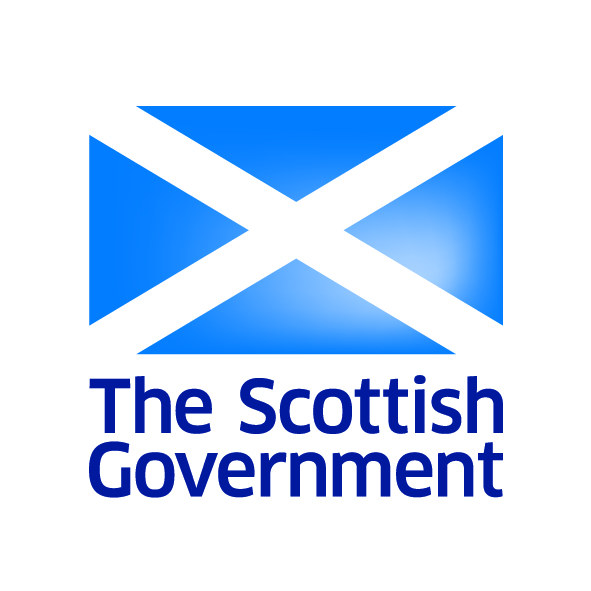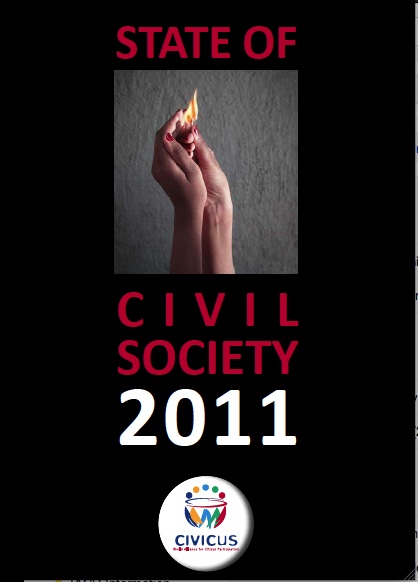 April 2012 Dear friends of IACD, A warm welcome to our new members from Australia, Canada, New Zealand, Uganda and the UK. With every new member who joins, we feel the world becoming a little smaller – and the possibilities of sharing experiences and advocating for community development expanding. Among the exciting developments we share with you this month are details of a new collaboration with the Scottish government, the opening of the application process for our 2012 Practitioner Dialogue in Pune, India, and the launch of the Community Development Journal’s new website, CDJ Plus. There are many more… so please read on! Don’t forget to visit www.iacdglobal.org for latest news and to check out our growing online bank of Member Profiles, helping you get to know your fellow IACD members from around the world. And please keep sending us news of events or resources which others might find useful! With all good wishes The IACD team Activities update  Scottish Government values learning from international practice We are delighted to announce that Scottish Government Ministers have agreed to provide a contribution to IACD's running costs over the next three years. The support will help IACD to maintain its presence in Scotland and deliver a programme of activities, which will enable community development practitioners and policymakers in Scotland to learn from international experience, and highlight Scottish community development practice internationally. The programme includes publications, virtual events and face-to-face learning opportunities, including a major international conference to be held in Glasgow in the run up to the Commonwealth Games in 2014. IACD members revitalize local networking IACD members in Victoria, Australia have collaborated in organising a series of seminars for 2012. The first of these, ‘In the Spirit of Mutual Learning – what is the role of Community Development in this new world?’, was led by Dr. Sue Kenny. The guest speaker for the second seminar was Dr. Supriya Pattanayak, who spoke on the theme of ‘The impact of international aid funding from western countries on community development at the local level’. To read more about the seminars, please visit: http://www.iacdglobal.org/ Assets mapping: want to tell us your story? Many people are trying to get to grips with how to unlock and mobilise the assets existing within their communities. As well as building a bank of useful resources, we are looking for good stories! By gathering and sharing stories, we aim to bring to life the experiences of people who have led or participated in asset mapping. We are particularly interested in hearing about approaches which were effective in bringing in voices which aren’t normally heard. If you have resources to share or a story to tell, please contact gill.musk@iacdglobal.org. The ‘Mapping community assets’ topic group on www.fieryspirits.com provides a forum for people working with communities in the UK, Ireland and internationally to share and learn from experiences of asset mapping. Website developments We are very close to launching new, member-only pages of the IACD website. These will enable us to keep members updated on current policy consultations, upcoming events, and opportunities to collaborate on the crowd-authored beginner’s guide to community development. Members will also be able to submit their own blog posts to our IACD blog. We will be sending out passwords over the next few days. Upcoming events  IACD Practitioner Dialogue 2012: apply now! Detailed information about IACD’s first Practitioner Dialogue, to take place in Pune, India in late August 2012, is now available. This exciting event will bring together practitioners from India and around the world in an exploration of the many faces of asset-based community development. The programme comprises an intensive workshop, followed by field visits to urban and rural projects, including Self-Help Groups and people’s organisations. Places are limited and will be allocated on a first-come first-served basis. For details and to apply, go to http://www.iacdglobal.org/ MFC conference: ‘Business or development? Time to choose’ Tbilisi, Georgia, 29-30 May 2012 The 15th Microfinance Centre (MFC) conference will focus on an industry at the crossroads. It will take a critical look at the microfinance industry, its impact and the key choices the sector faces in Europe, Asia and elsewhere. It will also explore the impact of the euro zone crisis and the new wave of recessions on microfinance and its clients, and the role of the internet in helping people out of poverty.Indigo partners will participate in a workshop on innovative ways to build assets for low-income people. For more information go to www.mfc2012.com/. Joint World Conference on Social Work and Social Development 2012: Action and Impact 8-12 July 2012, Stockholm, Sweden  This second joint world conference of IASSW, ICSW and IFSW will bring together policymakers, social workers, scholars and students to exchange experience and development in social work practice, social research and education and social policy. To read more and to register, go to http://www.swsd-stockholm- 'Breaking the Mould' Conference: Humanitarian Aid and Empowering Local Communities 1-3 August 2012, Durham University, UK Societies are facing increasing levels of risk and uncertainty in disaster situations. This makes delivering humanitarian aid in disaster situations is a complicated and controversial subject. Whilst there are numerous examples of good practice that relief workers can point to, there are also countless instances of exploitative and/or inappropriate interventions that those receiving aid have to contend with. This conference asks whether it is time for a paradigm shift in the manner in which aid is delivered and who can be legitimately involved in such work. What are the agendas that donors should respond to if they are trying to empower local recipients? What can be learnt from research and practice in this regard? For more information go to www.dur.ac.uk/conference. Publications and resources Community Development Journal (CDJ) launches new website The April 2012 issue (vol 47, No 2) of the Community Development Journal (CDJ) is as usual a wide-ranging publication. It includes articles drawn from diverse settings: from regeneration projects in London and Coventry in the UK, to community economic life in post-Soviet Ukraine, and then across the world to analyse the actions of recycling cooperatives in São Paulo, Brazil. Subjects range from theoretical discussions of community development in everyday life, the vocabularies people use to describe 'community' in Australia, the use of institutional ethnography as a research tool in Canada, and the need for community development strategies to tackle the 'digital divide'. This issue was especially notable as it launched the new website, CDJ Plus, which connects the journal to the wider community development world. The site contains information on relevant organisations and journals, and freely downloadable materials. Access CDJ Plus here:http://www.oxfordjournals.org/ Shaking our Assets: conference report now available A report of this event, a collaboration of IACD with the Community Learning and Development Standards Council for Scotland, is now available. The event explored asset-based approaches to community development from Scotland and around the world. Download the report and keynote presentations here: http://www.iacdglobal.org/  CIVICUS issues report on the state of civil society Civil society faces a generational opportunity to prove its value as a source of alternatives at a time of profound global crisis. This is the headline conclusion of the inaugural report on the state of civil society from global civil society network CIVICUS: World Alliance for Citizen Participation. The report concludes that in the face of connected economic, environmental, political and social crises, the institutions of global governance have been revealed as lacking. Meanwhile, state responses to the economic crisis are privileging private capital at the expense of citizens, and accordingly people around the world have risen up to resist poor governance, inequality and corruption, and to demand a change in the circumstances in which they live. The solution, the report concludes, can only be in the formation of new, more broad-based, inclusive coalitions and communities that take account of the diversity of civil society and the strengths of different parts of civil society, such as CSOs, community groups, online activists, the new protest movements, faith-based groups and trade unions. To read the report, go to:http://socs.civicus.org/. New publication explores the impact of mobile technologies on development  The United Nations Development Programme (UNDP) publication, ‘Mobile Technologies and Empowerment: Enhancing human development through participation and innovation’, is now available online. This study shows that mobile technologies are impacting human development, enhancing democratic governance and other development areas such as health, education, agriculture, and the environment, not by themselves, but as catalytic tools for enhancing and broadening development programming, if deployed strategically. To download the report, go to:www.undpegov.org/mgov-primer. Join us on facebook! We invite you to look for International Association for Community Development on facebook and start a discussion or share something about your community development work on our wall and group.
We love to hear from you! If you have news, events or upcoming trainings to share please send them to us at: info@iacdglobal.org with the subject line: for IACD e.bulletin.
Feel free to contact us: IACD office tel: +44 (0)1337 858 808 fax: +44 (0)1337 858 120 email: info@iacdglobal.org
Scottish Registered Charity: SCO36090
|
Tuesday, 1 May 2012
International Association for Community Development activities : April 2012 newsletter
Subscribe to:
Post Comments (Atom)


No comments:
Post a Comment
This blog does not take Anonymous comments. Experience shows that comments cluttered with "Anonymous" are boring and people don't know whether "Anonymous" is one person or many. This is not a decision about freedom of speech. It is a decision about boring or unwillingness to be known by even a pseudonym.